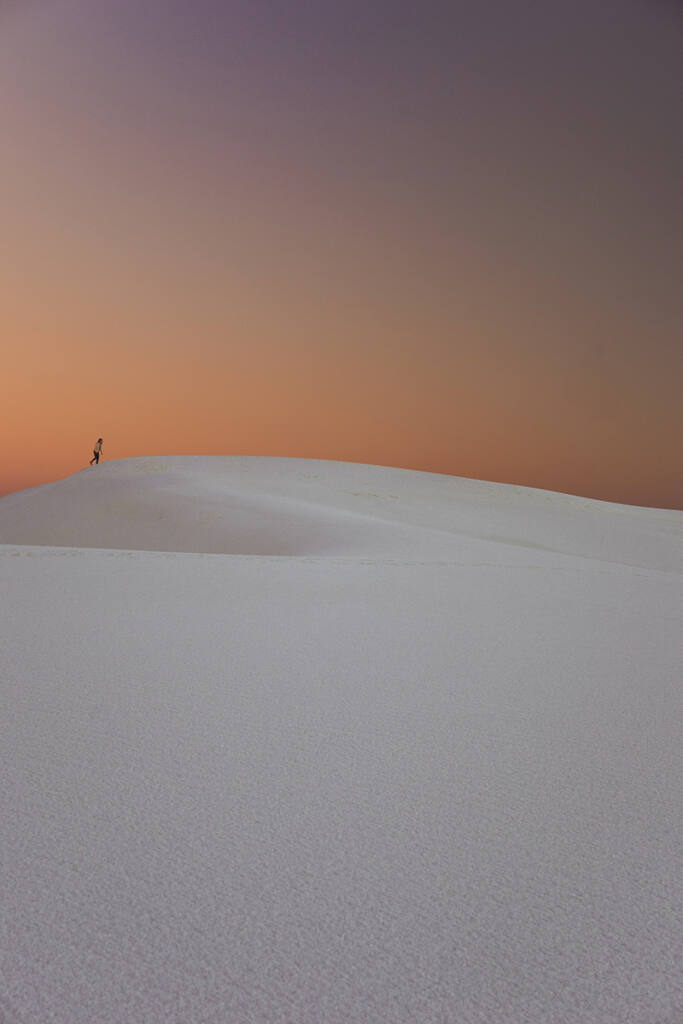WelCom December 2021
Hinge Points of Spiritual Living
By this letter, I am saying to fellow travellers:
know the journey you are on,
be nurtured by it,
and ready to share it.
Peter Cullinane 2021
(Bishop Emeritus of Palmerston North)
Commemorating – with gratitude and joy – 60 years ordained

Waking up to what is real
We are being drawn to God who is present in all creation. This happens even when we are not fully conscious of it. Living spiritually happens in earnest when we do become aware of it, and allow ourselves to be drawn to God.
Becoming aware is a process of self-transcendence. In one way or another, we are attracted to beauty and goodness and truth; our being drawn in this way is deep and real, but never quite fulfilled. Somehow, there is always more beyond us. This is what led St Augustine to exclaim: ‘O God, you have made us for yourself, and our hearts cannot rest until they rest in you.’
To expect fulfilment from anything less is to dream; it would leave us unfinished. Waking up to this is when we start the journey from what cannot fully satisfy to what can. It is a different way of seeing. It involves wonder. It leads to adoration. It’s a way of living to be prayed for and practised.
It was real life recycled in elusive vignettes
we move, ghost-like, from one to the next,
amid people and places we’ve seen before, though
why they are still there, we are not sure.
Life’s hill-tops, valleys, sharp bends and mists
all seem to say something but the meaning we miss.
Unless we awaken we’ll never know:
in dreams we see only the after-glow.
Most of us spend most of our time
skimming the surface thinking that’s fine;
we see without seeing, taking for real
what deep down we sense is only surreal.
When all is still, somehow we know
there’s more to it all than words can say.
Look again, look intently, in awe
at what really is – here, and now, and ‘you’.
Now you’re standing on holy ground,
stillness, silence, and wonder mingling.
Break free of what dumbs down –
the noise, the hurry, borrowed thinking…
A different way of seeing,
a different way of being

This different way of seeing translates into a different way of being. It is the journey of becoming our true self – through being ‘for others’, walking with them, and they with us. It means loving as we have been loved – without conditions, unearned, undeserved… ‘Mystical language expresses the gratuitousness of God’s love; prophetic language expresses the demands this love makes.’ (Gustavo Gutierrez).
It is above all the language of action. It involves all the ways we need to work to make human relationships more truly human. We are personally diminished if we settle for social, economic or political systems which don’t fully respect human life and human relationships. God’s own agenda is human beings, truly human and fully alive. It belongs to our relationship with God to have the same agenda.
‘There is no new humanity if there is not first of all new persons.’ (St Pope Paul VI)
A new way of seeing, a new way of being;
accepting truth, wherever from,
allowing compassion to break us open;
new eyes, new heart, new song.
To see why the world was made, look
at a child’s smile or a lonely weathered face;
to know yourself see in them
what only God could make.
Yet such as these, night after night,
cry into their pillow – or cardboard box;
the market place determines their worth:
– if not God, who else, why not?
Goods, by right for all, reach only some;
‘the system’ requires human sacrifice.
We’re all in this picture somewhere,
who’s that passing by on the other side?
Through prayer, reach those you cannot reach
in any other way. In the Spirit
manaakitanga has no limit, reaching
round the earth, Heaven too, and back to you.
The journey into reality
Becoming our true self – creating right relationships – is a process and takes time.
A ‘spiritual life’ is not a life running alongside our ‘ordinary life’. Spirituality encompasses every aspect of our life – bodily and social as well as interior. St Paul’s distinction between ‘spirit’ and ‘flesh’ does not involve a split: it is our whole self and ‘ordinary’ life that are either orientated to God (according to the ‘spirit’) or away from God (according to the ‘flesh’).
God invites us to enjoy life. The joy people can experience together is a powerful witness to God’s purpose in creating us. We do not disdain material reality or its pleasures, which belong to what God created and saw was ‘good’, in fact, ‘very good’. Asceticism has to do with the transitoriness of our present life – knowing how to let go of what cannot last; becoming more free. It involves acting on the belief that this life cannot fulfil all our hopes; we can afford to know our present life is ‘not fair’.
Allowing God to be God means giving up the illusion of self-sufficiency and the shackles of self-concern and self-justification. It means entrusting ourselves to God. This involves shedding whatever is not real, and taking responsibility.
So we set out, walking together
hearing more, seeing better;
Let go the baggage of self-concern,
the map of our journey we’ll draw as we go.
You’ll change to be true to who’s really you
by shedding the who that you’re not.
What we are not is what we try on – masks,
illusions, distractions, excuses,
wishful thinking, the need to be right…
none of them real, all of them useless.
Illusions unmasked, reality heals deepest,
where ego lets go, in crises and weakness;
we take the hand that reaches out:
our transformation, ‘God’s work of art’.
First steps guided by other’s expectations,
then hard choices forge inner convictions:
they don’t stay cocooned who want to fly;
to have a harvest, seeds must die.
What could or should or might have been
is not the point, not where the journey starts.
What was and is – reality – is what matters.
New life, where from but out of ashes?
Falling from grace, and into a mess,
it’s a very old story – intended to bless!
The scriptures depict it, history repeats it:
God’s mercy transforming unfaithfulness.
Our desert life can seem both full and empty;
so too, God, both near and far; for prayer
no need to feel you’re in God’s presence,
enough to know you simply are.
‘Blessed are the poor’ with wisdom and insight
less easily known at a greater height.
Bless too the night that deepens
our longing for the light.
Recall the moments that seem to tell
what you’ve been made for; that all will be well.
Savour the memories that bring smile or tear,
and let your heart speak for you.
Beware a darker foe disguised,
not true light – father of lies –
‘anti-humanity’ his name and his brand,
confusion his footprint; pretending wise.
When battered by unruly fears,
let them speak, bring them too,
The time will come when you will sing
‘thank you God for what will be, and all that’s been’.
“Through Christ our Lord”
The ‘hinge points’ of spiritual living considered thus far accessible to all who are awake to God’s presence in the natural world. Having this common ground with natural religions is part of our own spiritual living. Prayer belongs in all religions because prayer is whatever happens next when we become aware of God’s presence.
But our awakening enlarges when God reveals how much more there is to awaken to. God’s love, hinted at in nature is made explicit in salvation history, and fully revealed in the person of Jesus – the visible ‘image of the unseen God’ (Col 1:15). Looking at him, we know what God is really like (Jn 14:8,9). In Jesus we receive God’s invitation to trust God’s love; and to love in return.
We who know Him as the risen Christ are not less blessed than those who knew him as Jesus of Nazareth: ‘I will not leave you orphans; I will come back to you. In a short time the world will no longer see me, but you will see me…’ (Jn 14:18,19).
Living spiritually is not, after all, a matter of making room for God in our life; it’s about what God is doing, and our being drawn into God’s life. We see this in the events of ‘salvation history’, where saving deeds always come from God’s initiative, and point to a salvation beyond the limits of our present lives.
It is still so. In the liturgy, it is Christ who acts in the Eucharist and the other sacraments; Christ who speaks when the word is proclaimed in the assembly; Christ who acts in the ministry of the ordained minister; and Christ who is truly present among those gathered in his name – the congregation. (Const. on Liturgy, 7). Prayers made ‘through Christ Our Lord…’ – united to his – are always heard. There are reasons aplenty for not being part of the liturgy. And much to lose.
Becoming ourselves through being for others
a mysterious peace comes to us.
Discern the One who promised this,
and is the gift He promised.
Raised on the cross (evil did its worst),
raised from the tomb (worsted it was):
here’s the love that ‘changes everything’,
everything that’s raised up with him.
His saving power in past events
becomes in liturgy present tense.
Now it’s us he calls and sends,
telling us ‘I’ve called you friends’.
It’s a joy to belong and be called his own;
he’s not yet drafting the sheep from the goats –
the call to be holy can take some time.
If you don’t like sinners, you won’t feel at home.

In the power of the Holy Spirit
The Holy Spirit enables us to know who Jesus really is – ‘Lord’ (1 Cor. 12:3). What Jesus did for us, the Holy Spirit makes ours, by drawing us into the life of the risen Christ. This sharing in the life of the risen Jesus is the communion we share with all who are ‘in Christ’.
We witness to this communion, whether by the ‘silent witness’ of an authentic life (St Pope Paul VI,) or ‘with power, conviction and the joy of the Holy Spirit’ (1 Thessalonians, ch.1), or by working to renew the Church, or promoting unity among Christians. By uniting us to Christ, the Holy Spirit unites us with Christ’s mission.
The whole of creation is being made new through its union with the risen Christ, in whom it finds its ultimate unity (Eph. 1:3-14). Right relationships with nature are part of right relationships with one another and with God. Here, too, it is ourselves who are diminished through wrong relationships.
Each of us is unique and personally loved, but also part of the planet! Our activities, loving, laughing, singing… are all from the fibres of the planet. Our ‘interior’ lives are just as much part of the universe as are the atoms, planets and oceans. They are the ‘inside story’ of the outward events that are this evolving creation.
In each of us the universe is awakening to its own meaning; in us the universe becomes true to itself by giving thanks. By the choices we make, we contribute to what God is making.
The Spirit still drawing order from chaos
now in us, through us, around us –
kaitiakitanga through cultures, sciences, arts…
reaching into all creation, first with our hearts.
All that’s precious now
‘we shall find again
cleansed and transfigured’;
what matters now still matters then.
All this and more
is what we sign up for.
To the Father
The journey into reality starts within God’s own life of love and joy, and God’s desire to share that with us. ‘…You will be able to share the divine nature…’ (2 Peter 1:4). It was for this that the Son and the Holy Spirit were ‘sent’. Through them we go ‘to the Father’. This is the journey that unfolds in the humbleness of our ordinary lives.
Ecstatic love and joy is where
the journey started, and where it ends.
Along the way our tiny steps
loving, trusting, train for perichoresis.
None of this had to be – God didn’t need it;
but wonderfully, it is – because God chose it.
Since nothing is ours as if by right,
all is ours as gift and blessing.
As we journeyed we hardly noticed
the mist had lifted, the sun had risen;
things that seemed dim when we dreamed,
now in the sunlight beautifully gleamed.
Graced, buoyed up, free and forgiven,
gifts received are now gifts to be given.